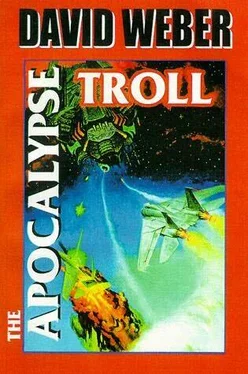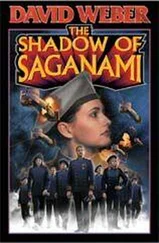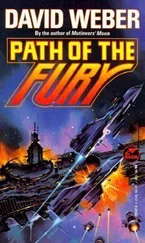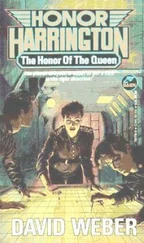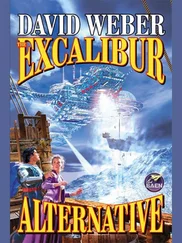David Weber - The Apocalypse Troll
Здесь есть возможность читать онлайн «David Weber - The Apocalypse Troll» весь текст электронной книги совершенно бесплатно (целиком полную версию без сокращений). В некоторых случаях можно слушать аудио, скачать через торрент в формате fb2 и присутствует краткое содержание. ISBN: , Жанр: Фантастика и фэнтези, на английском языке. Описание произведения, (предисловие) а так же отзывы посетителей доступны на портале библиотеки ЛибКат.
- Название:The Apocalypse Troll
- Автор:
- Жанр:
- Год:неизвестен
- ISBN:0671-57782-4
- Рейтинг книги:5 / 5. Голосов: 1
-
Избранное:Добавить в избранное
- Отзывы:
-
Ваша оценка:
- 100
- 1
- 2
- 3
- 4
- 5
The Apocalypse Troll: краткое содержание, описание и аннотация
Предлагаем к чтению аннотацию, описание, краткое содержание или предисловие (зависит от того, что написал сам автор книги «The Apocalypse Troll»). Если вы не нашли необходимую информацию о книге — напишите в комментариях, мы постараемся отыскать её.
The Apocalypse Troll — читать онлайн бесплатно полную книгу (весь текст) целиком
Ниже представлен текст книги, разбитый по страницам. Система сохранения места последней прочитанной страницы, позволяет с удобством читать онлайн бесплатно книгу «The Apocalypse Troll», без необходимости каждый раз заново искать на чём Вы остановились. Поставьте закладку, и сможете в любой момент перейти на страницу, на которой закончили чтение.
Интервал:
Закладка:
Yet for all its factionalism, waste motion, and sense of impermanence, the present Russian system had its advantages for her own purposes. It had been incredibly hard for Nekrasov to convince Yakolev to give the Americans his EEG without explaining why, but once that hurdle had been cleared things had moved even more rapidly in the Russian Federation than in the USA. If Pytor Yakolev wanted EEGs run on his people, he simply had to tell them so, and he had.
There had been some problems, she understood, since the KGB head hadn't been on the safe list. But enough other members of Yakolev's inner circle were, and the fact that it was common knowledge that Yakolev and Foreign Minister Turchin had been at odds for months over both Belarussia and the Balkans had actually helped. Turchin was still an ultranationalist, and he still distrusted America's ultimate diplomatic objectives intensely, but he was no fool and, for all his nationalist paranoia, he was a patriot. That was what had convinced Yakolev to include him in his government in the first place, and Turchin did have the right EEG. Confronted with Ludmilla's presence and her technology demonstration to prove her story, Turchin had recognized the imperative need to cooperate with the Americans, however much he distrusted them in other matters. And it had been Turchin himself who proposed that Yakolev use a cabinet shakeup-ostensibly to get rid of Turchin himself, on the grounds that their foreign policy differences had become insurmountable-to dispose of the KGB head and two other ministers whose EEGs prohibited admitting them to the inner secret.
And that, Ludmilla mused, might be the best sign for Russia's future she had yet seen. Turchin was, in many ways, the ultimate Russian peasant: shrewd, canny, warmhearted in his own way, xenophobic, stubborn to the point of pigheadedness, and with that aura of willing brutality which only a people who had been subjected to generations of brutality themselves radiated. And yet he had seen the necessity to act and act swiftly, even at the probable cost of his own political suicide, and he had done it. In the history she remembered, he hadn't resigned. Indeed, it had been he who replaced Yakolev after the President's assassination ... and who had led Russia into the fateful nuclear exchange with Belarussia. So perhaps her intrusion onto the past history of this universe, whether it was the one from whence she had sprung or not, would have more than one beneficial consequence.
And in the meantime, she could finally do something about the damage Dick had wreaked on her flight suit. The four Russian physicists now bent over the worktable beyond the control room windows had been frankly incredulous when she explained what she needed, but their attitudes had undergone a remarkable change in the past ten minutes.
Academician Arkadi Tretyakov had been the most skeptical of all, and he'd obeyed Yakolev's orders with patent resentment. When she gave him the voltage and amperage she needed he'd looked at her as if at a madwoman and told her it would require the full output of a dedicated nuclear plant.
Which was where they were right now, she thought with real amusement, and a ripple of laughter danced just behind her teeth as she remembered his reaction to the feed wire she'd produced from the heel of the flight suit. She supposed it was understandable-the superconductive ceramic-based wire's cross section was hardly larger than a single strand in one of Tretyakov's computer cables-and he'd sneered as he supervised the technicians who made the appropriate connections. But his sneer had turned into slack-faced shock when the switches were thrown and the feed drank every erg of power from his precious reactor without even warming up.
Now he and his colleagues watched with awe as the suit's self-repair systems did their job. It would take another hour or so, but when they were done, she would have her flight suit back, almost as good as new.
And that, she knew, might be more important than even Dick suspected.
The diesel locomotive thudded through the night, clattering over the rails of the Clinchfield Railroad beside the Nolichucky River. The lights of Poplar, Tennessee, had vanished behind it, its headlamp cut a diamond-white tunnel through the darkness, and Unaka Mountain loomed against the stars to the north as the special train rattled along toward Unaka Springs.
Ralph Twotrees was tense. He always was at times like this, and the hordes of military types riding with him were only part of the reason. There were few cars tonight, but those he did have carried trefoil-badged, white-painted containers of stainless steel, each surrounding an inner vessel of heavy shielding, and packed away in their hearts was the better part of a ton of weapons-grade plutonium.
Twotrees hated these trips. Though hazardous industrial chemicals were bad enough and the military had a sufficiency of other horrific cargoes, this was the worst. But he was the line's most senior engineer, and when a stinker came along, he was apt to be picked for it. He found it flattering, in an almost obscene way-until the next time they called on him.
And there would be a next time, he thought unhappily. He was a lifelong Democrat, and God knew there were still more than enough domestic problems which required attention, but even though he'd voted against Jared Armbruster, he respected and (grudgingly) liked the President. Worse, he'd loved the study of history since his high school days, and that made it harder for him to close his eyes to unpleasant realities than he could have wished. Given what was happening in the Balkans, and the Falklands, and the recent ratcheting up of tension in Kashmir, and Chinese saber rattling in support of Pakistan, and the renewed spread of nuclear weapons, the US had no option but to make certain of the effectiveness of its own nuclear force. Twotrees knew that, just as he knew that the Armbruster administration had found itself with an arsenal which previous administrations had deliberately allowed to dwindle in the earnest hope that nuclear weapons stockpiles truly could become a thing of the past. Well, Twotrees had hoped that, too, and he suspected Jared Armbruster had, as well. But things hadn't worked out that way, and Armbruster had brought Savannah River slowly back on-line-first simply to produce the tritium required to keep existing weapons functional and then, reluctantly, to produce the fissionables the military said it needed for entirely new weapons.
Twotrees hadn't minded the tritium too much. He wasn't clear on exactly how it functioned to enhance the effectiveness of nuclear warheads, but at least he'd known it was being produced only to replace other, no longer useful tritium in existing weapons. But these new warheads ... Those worried him-a lot-and he rather doubted the Powers That Were would have been happy about just how much he disliked the thought of being a part of producing new weapons. Not that it would keep him from doing his job and seeing to it that the horrific freight got delivered safely, but still ...
There was a major back in one of the two passenger cars, and enough firepower to fight a small war, but that didn't bother Twotrees. He was worried about his own job. He knew, intellectually, that the containment vessels would survive any accident he might contrive, but emotions were something else. This was his train, and the weight of his responsibility was like a load of Tennessee granite.
He glanced over at the Army captain riding the engine with him. Something about the man bothered him. He'd been brisk but friendly when he came aboard, yet in the last hour he'd grown progressively more silent. Now he stood to one side, swaying easily, with one hand on his holstered automatic, and his face was oddly blank.
Twotrees was about to say something when a light to the southwest caught his eye. More than one, actually. There were at least three of them, sweeping down No Business Knob towards the valley. He watched the bright, golden lights curiously. They were moving mighty fast. Must be helicopters. Could they be an unannounced military escort?
Читать дальшеИнтервал:
Закладка:
Похожие книги на «The Apocalypse Troll»
Представляем Вашему вниманию похожие книги на «The Apocalypse Troll» списком для выбора. Мы отобрали схожую по названию и смыслу литературу в надежде предоставить читателям больше вариантов отыскать новые, интересные, ещё непрочитанные произведения.
Обсуждение, отзывы о книге «The Apocalypse Troll» и просто собственные мнения читателей. Оставьте ваши комментарии, напишите, что Вы думаете о произведении, его смысле или главных героях. Укажите что конкретно понравилось, а что нет, и почему Вы так считаете.
